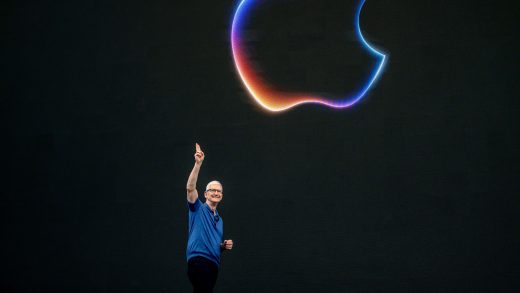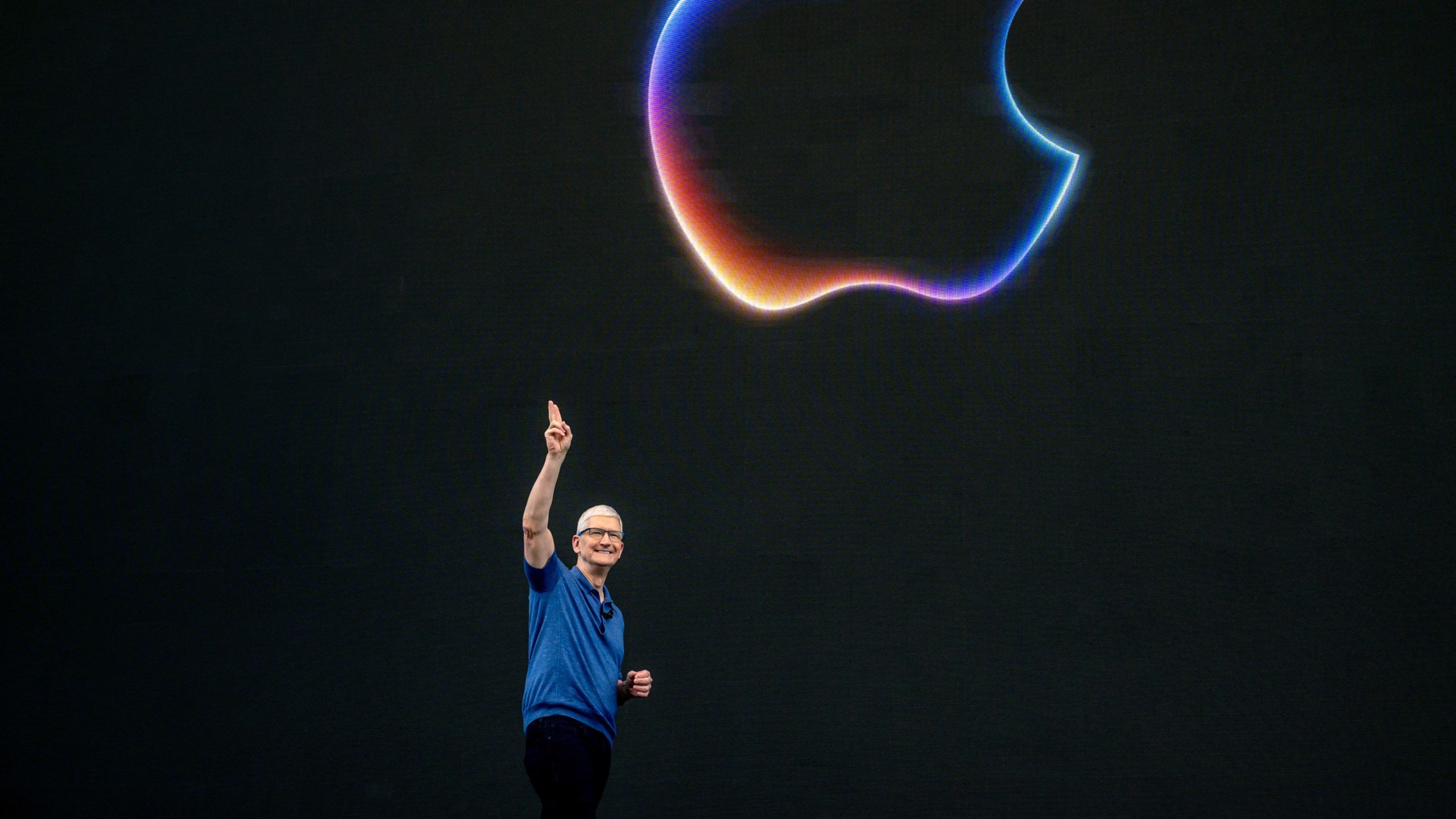Have we hit peak Apple?
Have we hit peak Apple?
‘Fast Company’ editor Yasmin Gagne discusses Apple’s new high-stakes partnership with OpenAI on the latest episode of Robert Safian’s ‘Rapid Response’ podcast.
Apple used Monday’s keynote at the annual WWDC event to unveil a roster of new software developments, product upgrades, and most importantly—their long-awaited AI play. Fast Company’s own Yasmin Gagne discusses Apple’s new high-stakes partnership with OpenAI, implications for app-based businesses, and investors’ reactions to the week’s news. Gagne also reads the tea leaves on Tim Cook’s future successor, explores whether we’ve reached “peak Apple,” and more.
This is an abridged transcript of an interview from Rapid Response, hosted by a former editor-in-chief of Fast Company, Bob Safian. From the team behind the Masters of Scale podcast, Rapid Response features candid conversations with today’s top business leaders navigating real-time challenges. Subscribe to Rapid Response wherever you get your podcasts to ensure you never miss an episode.
Apple x OpenAI
Did you watch the full keynote? It wasn’t short.
It was not short. I’m gonna be honest. I got a little bored, and then we hit the AI stuff, and I was fully back in.
A lot of the buzz coming in was about how Apple would enter the AI craze, which it’s been slow to do. And in classic Apple style, they rebranded AI itself, calling their offerings, “Apple Intelligence.”
I thought it was actually really smart. Artificial Intelligence seems like such a lofty term that no one actually understands. Apple Intelligence, to me, feels like “hey, this is something you’re going to find on your iPhone and you’re going to be able to use.” So, it seemed like a friendly introduction.
I’m really interested in Apple’s relationship with OpenAI. Apple has been talking about ‘privacy’ forever, right? And I think that’s served them pretty well. Now, if you’re using Siri and you ask them something that the phone can’t really answer on its own, they will use OpenAI’s ChatGPT4 to answer it. At every point when OpenAI is used, you will have to agree to it. So it’ll say, “can we use ChatGPT to answer this?” You’ll have to say yes. So that it’s very clear that whatever potentially messed up answer you get is not going to be Apple’s fault.
A new era for Siri
I want to ask you about Siri. Siri was sort of the proto AI assistant, but for a lot of us, it failed to live up to that promise. And now, they’re talking about it as like Siri is going to be your personal AI bot.
I actually looked up when Siri started and it’s way older than I thought it was. I think it’s like 10-plus years old and I was like, “damn, they really never improved this thing”.
Every big company that’s doing AI, like Microsoft and Google, all seem to think that there’s one way to do it: summarizing your emails. Every time it’s like, “Hey, you won’t have to read your text messages anymore.” And I always think of this scenario where I might send an AI email to someone, and it’ll become just a conversation between two bots where we never actually interact with each other.
Apple rebounds
Earlier in the year after iPhone sales dipped, there was fear that we’d reached peak Apple, and it had lost some creativity and it was behind on AI. And it seems like this week’s announcement has been interpreted as like a snapback, like there’s more juice in the tank.
I absolutely think that’s the case. My colleague Mark Wilson wrote an essay called, “Apple is no longer a design-led company.” It was about how so many designers left the company. Jony Ive was no longer there. And during the Keynote, that point really got hammered home to me when they were showing how you can change the colors of your icons. Because to me, one great thing that Apple’s always done is to say, “No, you have bad taste and we know what’s best.” And now they’re giving people more and more options to customize things. And if the examples that Apple is showing are ugly, imagine what you and I would make.
Tim Cook’s potential successor
I noticed during the Keynote that a lot of airtime was given to Apple software SVP Craig Federighi. Is there any tea-leaf reading in that’s about who might be the next CEO after Tim Cook?
I do think Cook is getting up there. Apple likes to hire from within its ranks. I think he seems like a pretty strong candidate. He’s also not too old and Wall Street will want a CEO that will be there for a decade plus. Apple makes a lot of money through hardware, but if the software can persuade people to buy that hardware, that’s amazing. So you know, I think it’s very possible that he’s in line for succession.
I don’t know if you noticed this, but in one of the transitions, he shows off some serious parkour moves. I’m not quite sure the tone that Apple was trying to strike. Was it trying to be funny? Or did they actually think it was cool?
You know, combo of both. I was like remembering when Sergey Brin was really into doing his stunts—maybe this is just table stakes now for these presentations? But Federighi was not someone I was super familiar with. Everybody calls him goofy. So maybe, that’s just his personal brand? But Apple is historically not the company I would be like, “they’re funny and cool.” Maybe they’re cool, but they’re not that funny.
Sparking fear in the market
A bunch of the new features are things that others have already come out with—creating custom emojis and images? I can do that on DALL-E or Midjourney, right? Or you can have your emails rewritten and checked for grammar? Isn’t that what Grammarly does? If you’re Midjourney or Grammarly, are you suddenly like, “Oh man, what I thought was a business is now just a feature, and am I in trouble?”
DALL-E is far more in image generation. And Apple simplified its product by design so lay people could use it. And maybe there’s a point where like the layperson and the expert converge into one user. But right now that’s not the case. My parents are never going to figure out DALL-E.
But I think If you’re an app that makes a lot of money from serving ads, users are now just going to ask Siri to pull up something for you. If those ads are not receiving eyeballs anymore, I think it could change the way that a lot of these companies make money. So I don’t know whether this is an app killer, but I do think a lot of app-based companies are going to get anxious. If you say, “Hey Siri, can you book me a car?” Uber and Lyft are going to be wondering which one Siri just picks automatically goes for? A lot of companies will be rethinking how they get information to you. I guarantee you, we’ll all be talking about how to game the Apple notifications to get up there first.
ABOUT THE AUTHOR
(2)



